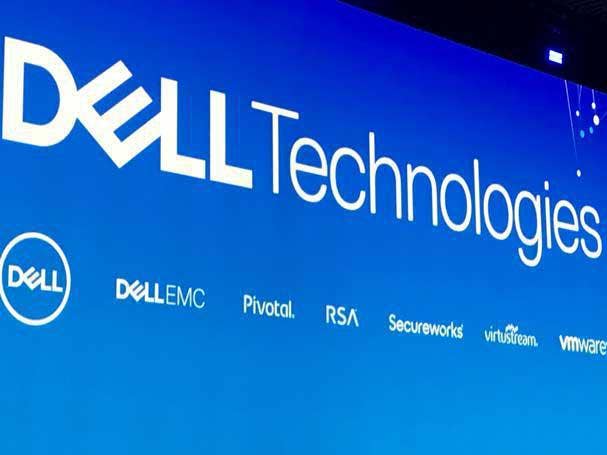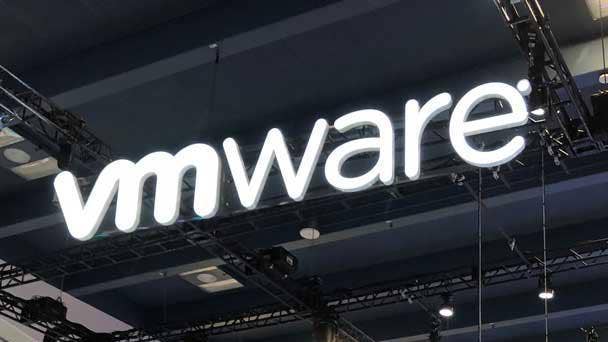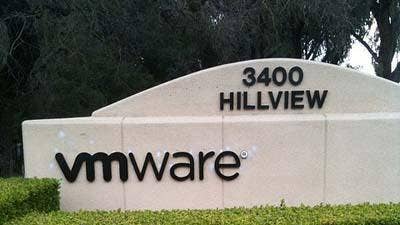Dell Layoffs, VMware Remote Worker Pay Cuts: 7 Key Points
Here’s everything you need to know about the recent layoffs at Dell Technologies and employee salary cuts at VMware for remote workers.

Layoffs, Salary Cuts And Pay Freezes
Dell Technologies and VMware have made some difficult decisions recently relating to their global workforces of roughly 165,000 and 31,000, respectively.
Dell confirmed this week that it was laying off some employees, while at the same time VMware confirmed it will be reducing salaries for employees who choose to relocate and permanently work from home.
Round Rock, Texas-based Dell and Palo Alto, Calif.-based VMware have a unique and powerful partnership together. Dell owns a majority stake in VMware stemming from its $67 billion acquisition of EMC in 2016. The two companies have a tight technology partnership, solid channel go-to-market strategy and co-engineer several market leading products alongside each other. Dell Technologies’ CEO Michael Dell is also chairman of VMware.
Here are six things VMware and Dell partners and customers need to know about the two companies’ recent news impacting employees.

Second Layoff Round For Dell In 2020
During a quarterly all-hands meeting on Monday, Dell’s Chief Operating Officer and Vice Chairman Jeff Clarke told staff that there would be workforce reductions. The layoffs would not be limited to any specific team or division within Dell, according to a Bloomberg report. Dell confirmed to CRN that there would be “some job loss or restructuring” but declined to specify how many people were being let go or from which division or geography.
“We’re also evaluating our business to make sure we have the right number of team members in the right roles and in areas where customers need us most. And, we’re addressing our cost structure to make sure we’re as competitive as we should be now and for future opportunities,” said Dell in a statement. “Every decision we’ve made up to this point is to make sure we’re doing what’s best for the long-term health of our company and our team.”
It is key to note that this isn’t the first time Dell has confirmed layoffs in 2020.
In July, Dell confirmed to CRN that it was laying off an unspecified number of employees. However, the company said it wasn’t related to the COVID-19 pandemic.
“Like all businesses right now, we’re taking a number of proactive steps to prepare for the uncertainties presented by COVID-19. We recently made some workforce reductions that reflect decisions made in early 2020 as part of regular evaluations of our business structure, and weren’t related to the pandemic,” said Dell in a statement in July.

VMware Confirms Two Layoff Rounds In 2020
In August, VMware told CRN that it was laying off an undisclosed number of employees, including Shawn Toldo, vice president of VMware’s Worldwide Partner Organization.
VMware declined to provide the specific number of employees being laid off or which business groups or geographies would be impacted, saying the layoffs were part of “a regular workforce rebalancing as we realign recourses and investments to opportunities at scale.”
The August layoffs marked the second time VMware confirmed it was letting people go in 2020.
In January, VMware confirmed that the virtualization superstar was laying off an unspecified number of employees as part of its “workforce rebalancing” aimed at ensuring resources across its global businesses and geographies were aligned to customers and objectives.

VMware Cuts Salary For Employees Relocating And Working From Home
Last week, VMware confirmed a report that employees who choose to become permanent remote workers would receive a pay cut depending on where they relocate.
Employees who worked at VMware’s headquarters in Palo Alto, Calif. that have decided to leave Silicon Valley must accept salary reductions. For example, if an employee leaves for Denver, they will receive an 18 percent pay cut, while moving to San Diego or Los Angeles means an 8 percent salary cut on their annual pay, according to a Bloomberg report that cites people familiar with the matter.
In a statement to CRN, VMware it is dedicated to equitable pay based on several factors including location and geography.
“Through our Future of Work initiative, VMware is building a dynamic, global workforce of the future where our people have choice and flexibility to work from any location that accelerates their productivity to deliver the most innovative solutions for our customers,” VMware told CRN. “Our program is designed to empower our employees with the information to help them make decisions should they desire to relocate. VMware is dedicated to equitable pay for its workforce, not by only race and gender, but also work location or geography.”

VMware Employees Who Relocate Could See Salary Increase
VMware said if an employee decides to relocate and work from home permanently in a more expensive city or town compared to Silicon Valley, their salary could increase.
Rich Lang, senior vice president of human resources for VMware, told Bloomberg that salary adjustments are based on the “cost of labor” depending on the different regional zones and benchmark salary variations among firms competing for its workers. Lang said VMware is being transparent with employees about how relocating will affect their salary.
However, in the U.S., Silicon Valley and cities in California like San Francisco are generally viewed as some of the most expensive places to live.

Both Dell And VMware Implemented Pay Freezes
In May, VMware and Dell Technologies confirmed they each have implemented company-wide pay freezes due to the economic uncertainties stemming from the coronavirus pandemic.
Dell temporarily halted employee pay raises, contributions to 401 (k) retirement plans and hiring throughout the company. “Like all businesses right now, we’re constantly evaluating our business to plan for resiliency in the current environment and to support our team members, customers and community in a way that sets us all up for success on the other side of this pandemic,” said Dell in a statement to CRN in May.
Shortly after the Dell announcement, VMware unveiled that it too has implemented a “number of cost management changes” after an internal memo surfaced stating that the company is conducting a companywide employee salary freeze as well as temporary salary reductions for top executives, including CEO Pat Gelsinger.

Michael Dell Talks Selling VMware Stake
Dell Technologies’ Michael Dell spoke to CRN this week about the company’s proposed plan to spin off its 81 percent stake in VMware to Dell Technologies and VMware shareholders.
“Look, we believe that this spin-off that we’re considering could benefit both the Dell Technologies and the VMware stockholders,” said Dell. “It simplifies the capital structures, it enhances strategic flexibility and gives both companies more flexibility, while we continue with the mutually beneficial strategic and commercial partnership that we’ve had for many, many years that has worked extremely well and it continues to.”
The proposal is to spin off its stake in VMware to shareholders in order to boost Dell’s credit rating, help Dell quickly achieve an investment grade rating, attract new investors and potentially lower its billions in debt stemming from its acquisition of EMC. If the spin-off is approved, VMware will pay a special dividend to shareholders, the largest of which are Michael Dell and his private equity partner, Silver Lake.
Michael Dell currently owns approximately 52 percent of Dell Technologies while Silver Lake owns nearly 14 percent. If the spin-off is completed, Michael Dell will own approximately 42 percent of VMware, while Silver Lake will hold about 11 percent.

New Channel Leaders At Both Dell And VMware
This year, both Dell Technologies and VMware have selected new global channel leaders responsible for leading billions in annual sales. Dell channel partners, for example, generate approximately $50 billion in sales for the $92 billion infrastructure giant.
After 21 years at Dell Technologies, Joyce Mullen left the company on Aug. 14. Dell has hired Cisco’s former president of Canada Rola Dagher (pictured) as its new worldwide channel leader.
“I have a degree in getting things done, and getting things done really quickly,” said Dagher in an interview with CRN. “This is the most important role of the organization, which is the partner ecosystem and the channel partner organization. It starts with our partners and ends with our partners.”
VMware’s global channel leader, Jenni Flinders, unexpectedly and quietly left the company in June after two years of leading VMware’s restructured channel charge. Flinders created VMware Master Services Competencies and completely overhauled VMware’s entire partner program with the launch of Partner Connect on March 1. Flinders was replaced by former longtime Cisco veteran Sandy Hogan.